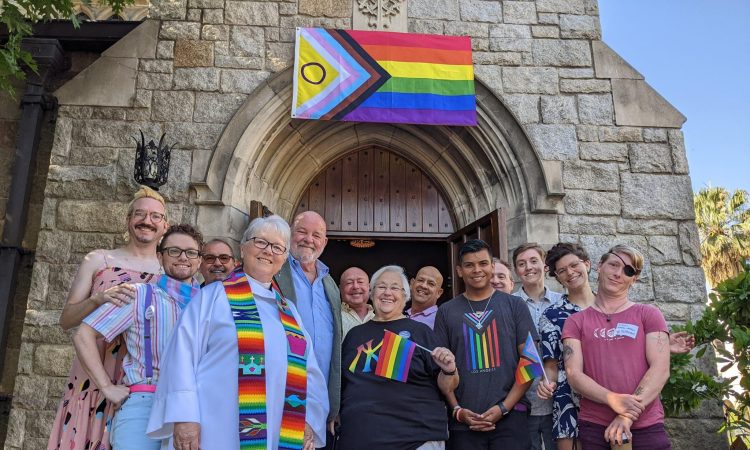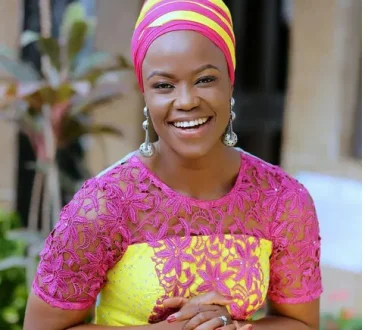Church at a Crossroads: Dr. Jane Yang Calls for Urgent Awareness of LGBTQ Impact Amid Changing Generational Landscape

“The church cannot remain on the sidelines. It must step forward, equipped with understanding, love, and a commitment to truth, if it is to engage this generation and provide the support they need.”
In a stirring and data-driven lecture, Dr. Jane Yang (杨符济珍), Head of the Gender and Relational Ministry at Family Keepers International, has raised urgent questions for the global church regarding the growing influence of the LGBTQ movement. Addressing a crowd of Christian leaders, parents, and counselors, Dr. Yang delivered a sobering message: the influence of the LGBTQ movement has not only entered mainstream society but has also “broken through the walls of the church,” reshaping the way younger generations approach faith and identity.

Drawing from her extensive experience working with LGBTQ individuals and their families, Dr. Yang’s lecture was both a call to action and a wake-up call. She pointed to startling statistics that highlight a significant cultural shift, especially among Gen Z adults (those born between 1997 and 2012). A 2020 Gallup survey revealed that one in six Gen Z adults now identify as LGBTQ—a sharp increase compared to previous generations, where only 3.8% of Gen Xers (born between 1965 and 1980) identified similarly.
Fast-forward to 2024, and the numbers have grown even more dramatically. Citing the latest survey from the Public Religion Research Institute, Dr. Yang noted that 28% of adult Gen Zs (ages 18 to 25) now identify as LGBTQ—a sevenfold increase from the 4% reported among baby boomers. “The numbers are undeniable,” Dr. Yang stated, “and as older generations fade from the spotlight, younger voices—many identifying as LGBTQ—are stepping forward.”
Breaking the data down further, Dr. Yang explained that within this 28%, 15% identify as bisexual, 5% as homosexual, and a variety of others as transgender or questioning. These figures reveal a profound generational divide, with Gen Z adults adopting more open attitudes toward gender and sexuality than their predecessors.
This cultural shift, Dr. Yang argued, is particularly challenging for the church. Historically, many church leaders have adhered to traditional teachings on sexuality and gender, leading to what she described as a growing disconnect between the church and younger generations. The increasing number of LGBTQ-identifying individuals within church communities presents a critical question: How will the church respond?
Dr. Yang warned that ignoring this issue is no longer an option. “The flood is here,” she remarked, “and if the church is to remain relevant and faithful to its mission, it must engage with this reality, not resist or deny it.” She urged churches to move beyond condemnation or passive inaction, instead calling for more proactive shepherding and understanding of the LGBTQ community.
One key area Dr. Yang highlighted was the impact of legal and psychological frameworks on Christian counseling. In many U.S. states, including California, conversion therapy—the controversial practice of attempting to change someone’s sexual orientation—has been banned for minors. Christian counselors, therefore, must now navigate a landscape where suggesting that sexuality is linked to mental health issues like depression or anxiety could jeopardize their professional licenses. “Affirmative therapy,” which supports clients’ gender identity or sexual orientation, has become the norm.
Dr. Yang noted that this legal environment presents a challenge for churches and faith-based counselors who hold to traditional views on sexuality. “We need to balance our theological convictions with the need for pastoral care and genuine support,” she explained, urging Christian leaders to find ways to walk alongside LGBTQ individuals with compassion, even as they maintain their doctrinal beliefs.
Beyond simply raising awareness, Dr. Yang’s lecture also offered concrete guidance. She called on churches to invest in education and training on LGBTQ issues, not only for their leadership but also for congregants and parents. Providing informed, empathetic care, she argued, is critical for churches that want to remain a space of healing and community for all.
Dr. Yang’s lecture marks a turning point in how the church approaches the LGBTQ movement. With Gen Z’s rapid embrace of new sexual and gender identities, the church’s future relationship with this generation hinges on how it responds to the evolving cultural landscape.
As Dr. Yang concluded, “The church cannot remain on the sidelines. It must step forward, equipped with understanding, love, and a commitment to truth, if it is to engage this generation and provide the support they need.”
Her call to action comes at a pivotal moment, and in follow-up reports, she plans to offer more specific advice for churches and parents on navigating these new realities. The road ahead may be uncertain, but Dr. Yang’s message is clear: the church must adapt or risk becoming irrelevant in the eyes of the very generation it seeks to guide.




